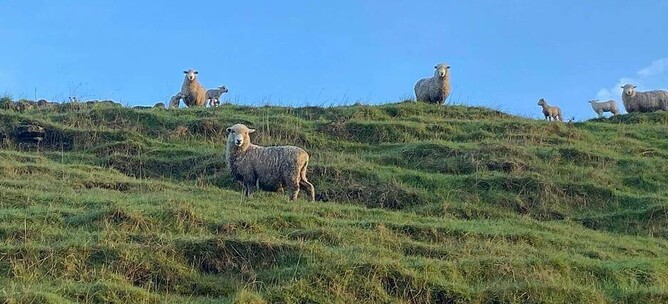How to reduce risk to yourself and your animals.
Enteric salmonellosis of sheep is a bacterial disease causing outbreaks of diarrhoea and death. Salmonella Hindmarsh is usually the cause, however Salmonella typhimurium, and bovis-morbificans can also cause issues.
Most outbreaks occur between December and June, usually after a period of stress, such as transport, yarding, high stocking rates, or sudden changes in feed. These events can result in changes to gut bacteria, allowing salmonella to proliferate in the gut. Large numbers of bacteria are passed in the faeces onto pasture, acting as a source of infection for other sheep. In most cases, carrier sheep are the source of infection.
In most cases, sheep are found dead with or without diarrhoea. Ill or dying sheep are often dull, unwilling to move, have an elevated temperature, and have profuse diarrhoea that may contain blood. Mortality can range from 1-5%. Sheep older than 12 months are usually affected, however, in some cases disease is also seen in lambs.
How do we manage this?
Because it is difficult to predict the course of disease of Salmonella, disease control will vary between farms. Often we will recommend to:
- Remove sheep from the affected paddock
- Provide a good and reliable water source
- Isolate those showing clinical signs
- Bury dead sheep
- Spread out the infected flock to reduce cross-infection
- Increase the level of nutrition, however, can be difficult as often disease occurs in times of feed shortages
- Avoid any stress factors
- Take care mustering and yarding, and ensure you disinfect yards after use.
- Vaccinate in the face of an outbreak, however, this can take 7-10 days to take effect.
Remember this is a zoonotic disease, so you can catch it from your flock. Wear gloves and wash everything you use with disinfectant.
Often farmers want to know how to prevent Salmonella on-farm. The most effective way of doing this is through vaccination, management practices alone are often insufficient. There are many options with salmonella vaccination, so have a chat with your KeyVet about what could work best on your farm.
- Emily Chisholm

